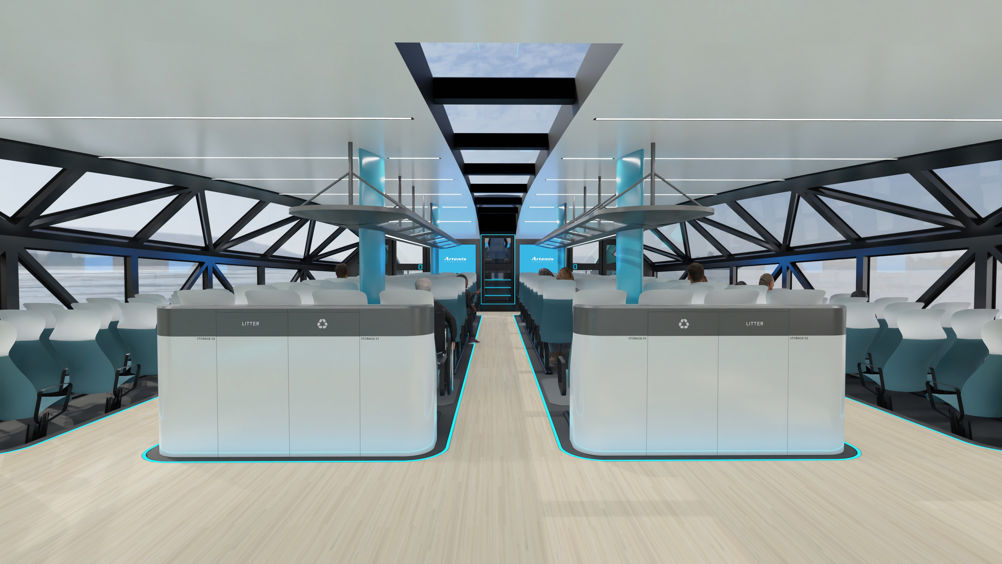The EF-24 is being built by Artemis Technologies, a Belfast-based spinout from Americas Cup team Artemis Racing. Capable of carrying up to 150 passengers, the 24m electric vessel will have a range of 115 nautical miles at its cruising speed of 25 knots, alongside a top speed of 38 knots. According to Artemis, the electric foiling propulsion system will deliver fuel savings of up to 85 per cent compared to diesel-powered ferries of similar proportions, while also dramatically reducing noise, water and air pollution and minimising the EF-24’s wake.
Related content
“We have combined our experience from the worlds of high-performance sailing, motorsports, aerospace, and advanced manufacturing to design and develop an electric propulsion system that is quite simply a game changer for the maritime industry,” said Artemis Technologies founder Dr Iain Percy, a two-time Olympic sailing champion and former Americas Cup competitor.
“Our high-speed passenger ferry provides a cost-effective public transport solution that helps address air pollution, congestion, and noise.”

The new e-ferry will feature a range of mod-cons onboard, including bike racks, cabin bag and overhead storage, baby changing facilities and charging points. It is hoped that the Belfast-Bangor pilot route will encourage people out of their cars, providing rapid transit between the two urban areas and serving as a model for other coastal cities.
"Many water-based cities around the world are grappling with the challenge of growing populations, congestion, and pollution," Percy continued. “By encouraging multimodal transport in urban areas, we will enable cities around the world to utilise and benefit from the untapped potential of their waterways.
“The EF-24 Passenger can provide an immediate green transport solution that competes economically with road and rail in places like San Francisco, New York, Venice, Istanbul, Dubai, and Singapore – anywhere around the globe that is seeking sustainable transport alternatives that balance the requirement for people to continue to move around with the need to reduce carbon emissions.
“Especially where new infrastructure is required like a new road or rail line, this ferry will not only be the cheapest, but also the fastest and least disruptive way to decarbonise transport networks in water-based cities”.
Artemis says the vessels will also feature a unique high-speed collision avoidance system developed with ECIT, part of Queen’s University Belfast. The system is designed to ensure the safety of operations in port and close to shore by safely diverting the ferry on an altered path away from sea life, wildlife, debris and other in-water objects that might otherwise be obscured from view.
Artemis Technologies has partnered with Condor Ferries to operate the pilot scheme, set to enter service in 2024.










Comment: Hybridisation is a new era for aerospace
Reduced weight & simplification of the combustion engine operating , If hybrid cars are anything to go by. Further weight reduction might be...